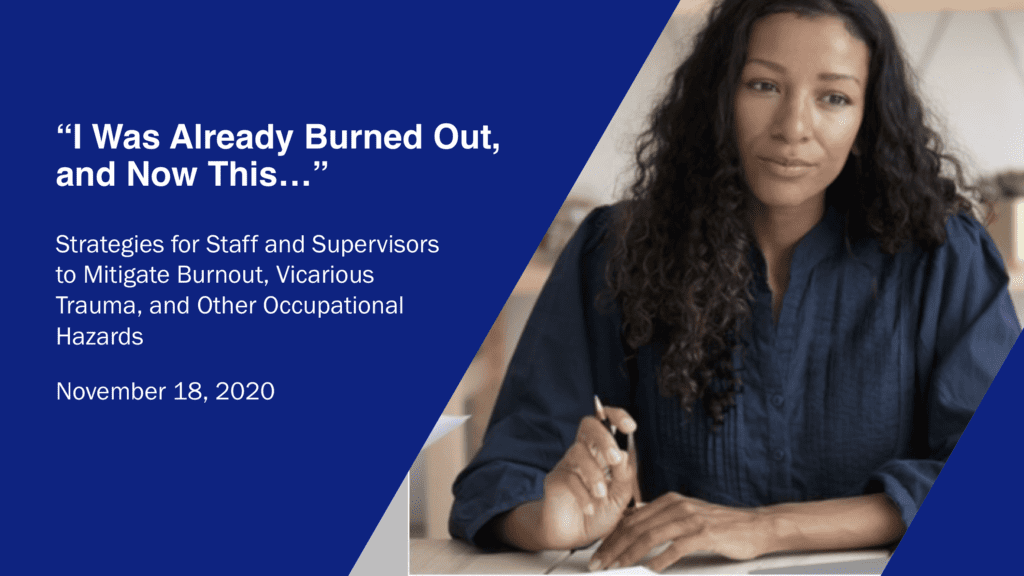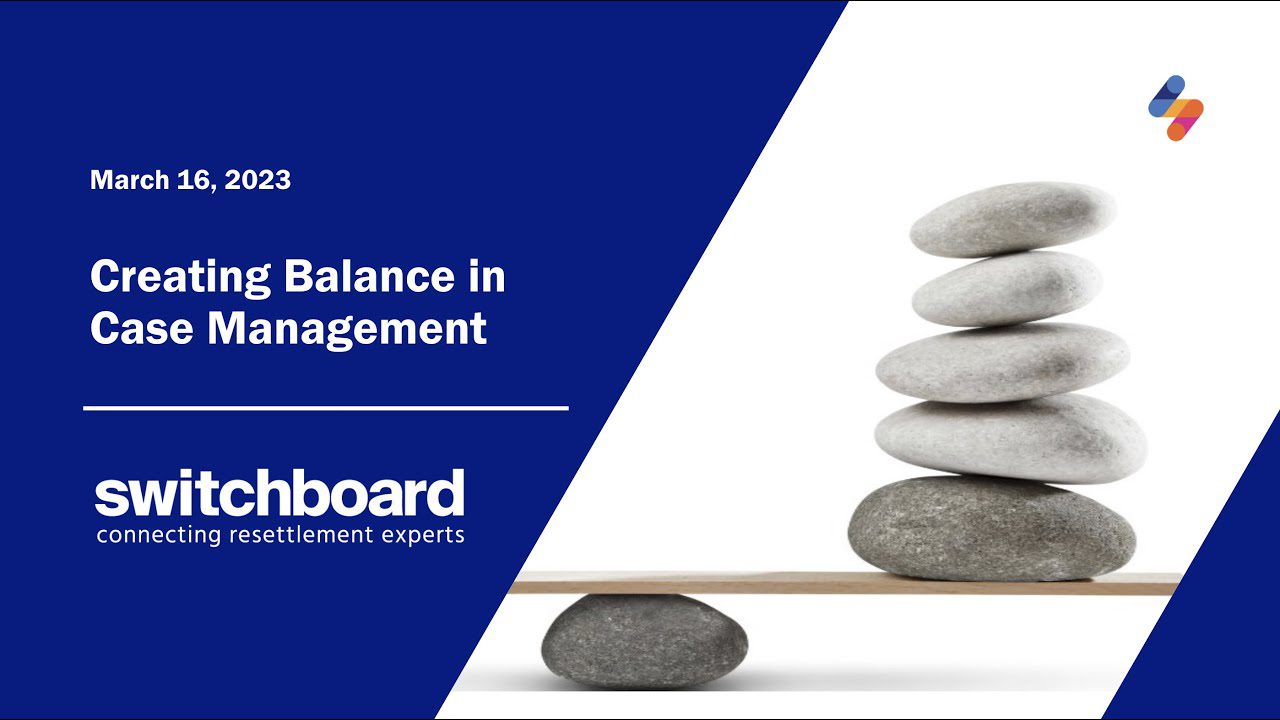Hosted on November 18, 2020, this training was delivered by Adeyinka Akinsulure-Smith, Ph.D., ABPP, Licensed Psychologist & Professor, The City College of New York Bellevue Program for Survivors of Torture; and Kristen Guskovict, LCSW, Founder, Humanitarian Empathy and Refugee Trauma (Heart) of Aid Work.
For many months now, U.S. refugee service providers and the clients we work with have been experiencing the collective stressors of COVID-19 and other current events such as police brutality and social unrest. For those who have experienced war and conflict, these current events may be re-traumatizing. Already difficult work has become more difficult, and the risk of occupational hazards has increased. This webinar describes practical ways that agencies and individuals working with refugees can address occupational hazards including burnout, secondary traumatic stress, vicarious trauma, and compassion fatigue. Participants learned promising practices for responding to these hazards and how to develop personal and organizational responses to distress. Click here to access the accompanying information guide, Preventing Occupational Hazards by Promoting Organizational Resilience.
This webinar is aimed at front-line and management staff of refugee-serving organizations. This includes directors and program managers, case workers and supervisors, employment specialists, education service providers, and other direct service providers.
By the end of this webinar, you will be able to:
- Identify types of occupational hazards related to emotional distress;
- Define two to three best and promising practices in organizational responses to these hazards;
- Recognize how COVID-19 has impacted emotional wellbeing within your agency;
- Develop a personal response to distress; and
- Develop an organizational response to distress.
Navigate this webinar with the timestamps listed below:
0:00 – Introduction to Switchboard
2:11 – Introduction to Speaker and Objectives
4:15 – Occupational Hazards
34:12 – Organizational Care Plans
51:27 – Self-Care Plan
1:03:38 – Q&A







